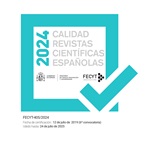La deducción del IVA en la transmisión del patrimonio empresarial. A la luz de la jurisprudenica del TJUE. (RI §413867)

The ECJ jurisprudence on the transfer of business assets and VAT deductions -
Silvia Velarde Aramayo
El artículo analiza el tratamiento tributario de la transmisión del patrimonio empresarial y profesional. Durante muchos años algunas Administraciones Tributarias se han negado a considerar este tipo de transferencias como supuestos de no sujeción al IVA si es que no venían acompañadas de la transmisión de bienes inmuebles. La razón era obvia: evitar que el nuevo propietario ocupara el lugar del propietario original y que por tanto, pudiera aprovechar el IVA pendiente de deducción.
El análisis de la jurisprudencia del TJUE muestra como algunas autoridades tributarias han efectuado una interpretación incorrecta del Art. 19 de la Directiva 2006/112/CE. Según el Tribunal, la neutralidad del IVA no puede quebrarse apoyándose en requisitos legales o administrativos sobre el tipo de propiedad incluida en la transferencia de una empresa, y tampoco puede depender de si conlleva o no un contrato de arrendamiento inmobiliario. El criterio fundamental sólo consiste en verificar si los elementos tangibles e intangibles incluidos en la transferencia son lo suficientemente sólidos para permitir el funcionamiento económico autónomo de la empresa. En dicho caso, la transferencia no estará sujeta al IVA y el adquirente ocupará el lugar asignado al transmitente pudiendo deducir el IVA pagado por el propietario original en relación a esos activos empresariales.
This article analyses the tax treatment of the transfer on professional and business assets. Tax authorities for many years were refused to treat these transfers as transactions not subject to the VAT if the sale did not include the transfer of real estate in property. The reason was obvious: prevent that the new owner could deduce the previous VAT and therefore, that it can take the place formerly occupied by the transferor.
The analysis of the ECJ jurisprudence shows how some tax authorities introduced a misinterpretation of section 19 of 2006\112\CE Directive. The VAT neutrality cannot be broken by legal or administrative requirements about the type of property included in the transfer or if the contract is linked with the rentals of real estate. The main criterion only can consist in check whether tangible or intangible property included in the transfer is enough or not for it functioning as autonomous economic entity. In that case, the transfer of the business assets are not subject to the VAT and the buyer can occupy the place of the assignor, and of course, deduce the VAT that the original owner has previously paid in connection to these business assets.

 DIRECCIÓN / MANAGEMENT
DIRECCIÓN / MANAGEMENT